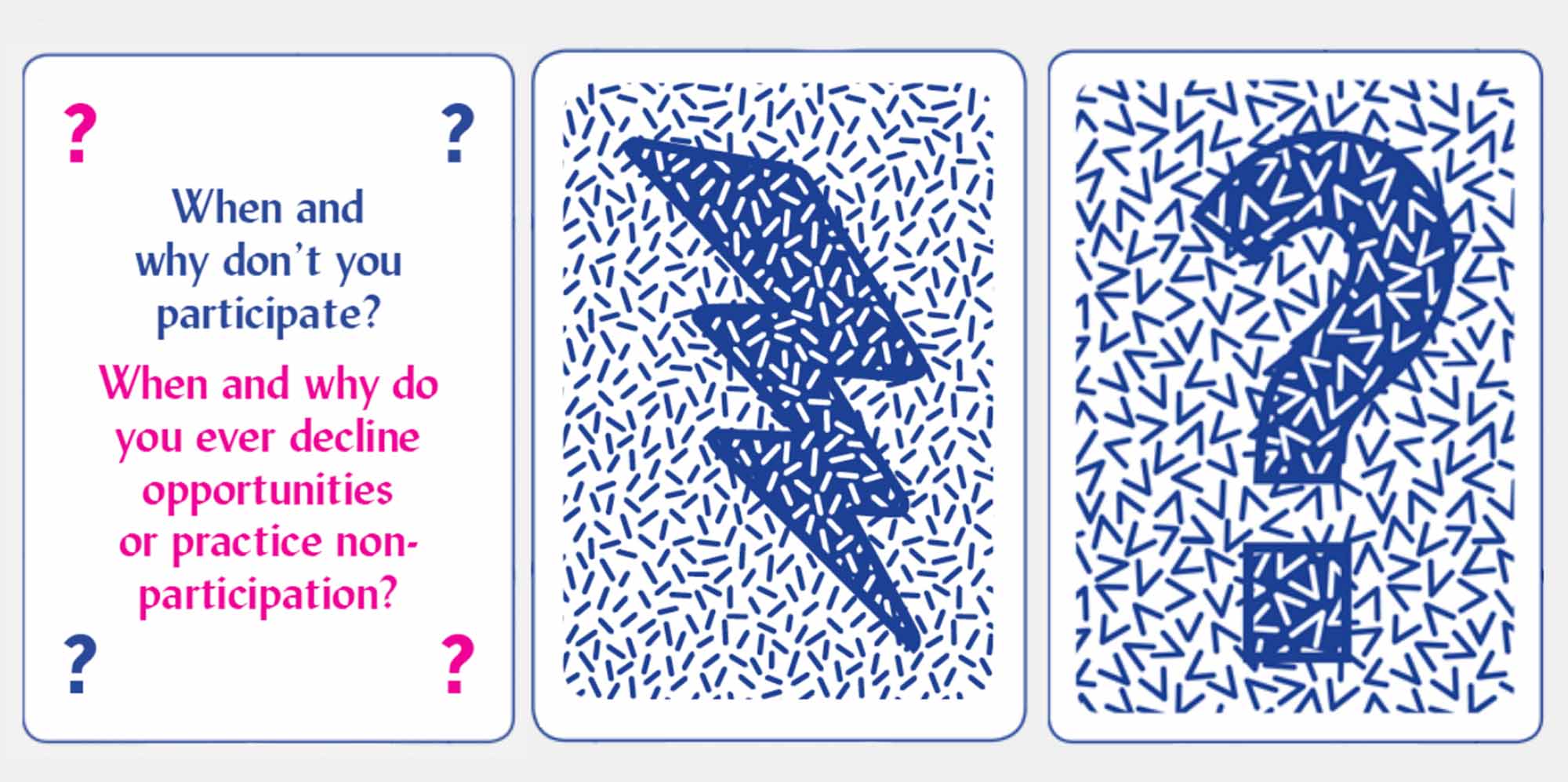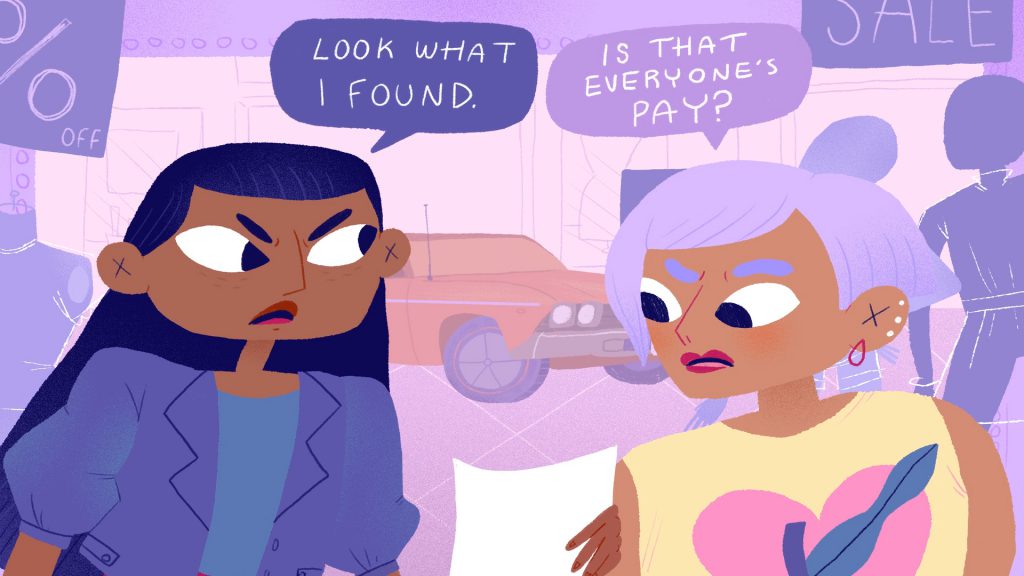This is the fourth installment in a six-part series featuring four artists playing Inter/de-pend-ence: The Game, a dialogue-based game exploring cooperation, competition, and other themes of mutual support.
Are you playing? Catch up with the introduction, or find the previous rounds here and here.
You can play Round 4: Supporting Others by downloading a PDF or drawing cards online.
Malcolm Peacock, Answerer
Malcolm draws the Question Card, “How do you support others/other artists?”
It’s funny, because the ways we support each other as artists are often the ways we support people in general. Which I think is really good.
My own emotional, personal coming of age—leaving for college—was marked significantly and very abruptly by the death of my father. So, I have taken the initiative over the last five years to do a lot of outreach, just reaching out constantly. That is one of the only ways I can actively, substantially, and sustainably support people who I think need and deserve support. Yet to return support that I have received is really complicated; being established on the backbone of death, it’s extremely serious to me. I have had to do a lot of labor in myself to make sense when that care or support isn’t reciprocated. I think that is a difficult thing to have to learn, especially post-death and as a child.
As an artist, when I have extra money in a budget, or in my personal budget, I try to spend that on artists, especially artists who are underrepresented in their contexts. So, if I’m at a print fair and black women artists aren’t getting prints bought, I’m trying to buy those prints. I am also trying to support artists in my practice by giving… I have a pretty conversational practice, and the work that I am making right now is really about feeling inside of capitalism, and all of the reasons why it is so difficult to find space to do so. I think it’s a good way to give to artists—artists who aren’t under a capitalist regime, feeling like they have to make their practice into a production. I want to be able to give those artists space to exist and to know that their practice doesn’t—shouldn’t be, and doesn’t have to be—contingent upon a market. I think it should always be contingent on their desires.
Ronny Quevedo, Concretizer
It’s interesting to hear Malcolm talk about those things in regards to death and mourning—issues I’ve been dealing with myself personally also with my dad. He passed away about eight years ago.
In regards to support, I try to understand what support means to me, through my own experiences which I felt not necessarily unsupported, but maybe ill-equipped or unprepared, or a completely new experience. I try to put myself in that position.
Christine, I’m going to use the example you used before because as we’re artists that are constantly traveling, I think this might become more recurring… When we come across a new or unfamiliar space, I try to find resources with which I could help. So, when Christine told me she was going to Albuquerque, I had been there before, so it was a really clear moment where I was like, “OK, I know what Albuquerque can feel like.” Your work is so reliant on community, and this project was contingent on working with immigrant residents, so I just made sure that Christine was connected to the people that I had worked with a year before—and Working Classroom is really well connected to the migrant community. That’s also a really sensitive topic—people who are in statuses that they would rather try to keep under a low profile—so I felt like it would be a good time to connect Christine with Working Classroom who are sensitive to the needs of the audience that she was working with.
Christine Wong Yap, Tactician
Christine draws the Tactic Card, “Discuss a 180º perspective.”
Not supporting artists? {laughs} Miami just happened and, I mean, not to knock anybody who goes to Miami [art fairs], but I definitely feel that the emphasis on outfits and heels and parties is not about art and artists. Just the fact that so many artworks are shiny bubbles that literally people want to see themselves reflected in—not in any deep way, but in a superficial, cosmetic way. That to me is 100% not about supporting artists. It’s not really a space intended for artists.
Torreya Cummings, Summarizer
I’m going to try synthesizing this a little bit. I heard people talk about similar things. One of those is support: The desire to support others and other artists. That is often coming from a personal place of feeling and empathy. You want to ameliorate it in other people, so connecting people with resources that they can benefit from—especially artists you feel like are under-represented, or aligned with your values—and trying to help them— whether through financial support like buying their work, or connecting them with resources in a new and unfamiliar place.
I think Malcolm brought up the difficulty in separating when you’re putting care into something and/or someone, and you may not get it back in the same way from the same person. That can be a difficult thing to overcome, but it sounds like it’s still seen as valuable (to put that effort into the world) even if it doesn’t come back to you directly.
Looking at money and the market system… You can support somebody financially by buying their work, but the market is not designed to be supportive of artists. It’s a tricky place where you know the difference between going to Miami and taking selfies, and supporting somebody whose work you admire… It’s still all about money, but it’s coming from a really different set of intentions.
Inter/De-pen-dence game play, Round Five: Majorities, will post next week—come back and play along!












